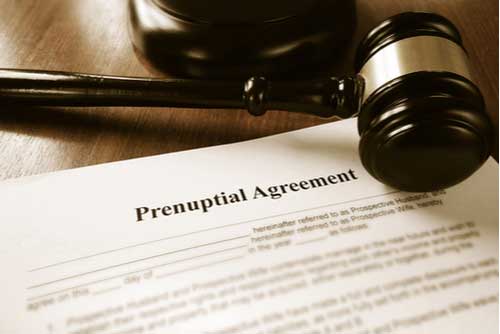Divorce can be a tumultuous and emotionally charged experience, laden with complexities that require careful navigation. One of the most crucial aspects of managing this process effectively is documentation. Properly documenting your divorce case not only helps in streamlining communication with your legal counsel but also ensures that all pertinent information is accessible when needed. This article will outline how to document your divorce case effectively, providing insights into key steps, best practices, and legal considerations.

Understanding the Importance of Documentation in Divorce Cases
Why Is Documentation Crucial?
Documentation serves as the backbone of any legal proceeding. In divorce cases, maintaining accurate records can significantly impact outcomes related to asset division, child custody, and support obligations. Here are some reasons why proper documentation is essential:
Clarity: Clear records help eliminate misunderstandings between parties. Evidence: Documentation provides evidence that may be vital during litigation or mediation. Organization: Keeping a well-organized file simplifies access to information when working with an attorney. Legal Compliance: Meeting legal requirements often involves submitting specific documents; thorough documentation ensures compliance.Types of Documents to Collect
When approaching your divorce case, it's crucial to gather a variety of documents that will be relevant throughout the process:
- Financial Records: Bank statements, tax returns, pay stubs, investment accounts. Property Documents: Deeds to real estate, car titles, mortgage agreements. Legal Documents: Marriage certificates, prenuptial agreements, previous court orders. Personal Records: Correspondence between you and your spouse concerning important issues like child custody or financial matters.
How to Document Your Divorce Case Effectively
Step 1: Create a Dedicated Folder for Documentation
Establishing a dedicated folder—physical or digital—specifically for your divorce case is the first step toward effective documentation. This folder should be organized into sections based on categories such as finances, legal documents, and correspondence with your attorney.
Benefits of a Dedicated Folder
- Easy access to all necessary documents Streamlined communication with your attorney Reduced stress from disorganization
Step 2: Organize Financial Information
One critical aspect of divorce involves the division of assets and liabilities. To prepare for discussions with an affordable divorce lawyer or family law attorney, ensure you have organized financial information at hand.
Checklist for Financial Documentation
- Recent bank statements (at least 6 months) Tax returns for the past three years Pay stubs from both spouses Statements from retirement accounts and investment portfolios
Step 3: Collect Communication Records
Keeping track of communications between you and your spouse can be invaluable in court proceedings. This includes emails, texts, and written correspondence related to important topics such as child custody arrangements or financial discussions.
Best Practices for Recording Communications
- Use email threads or message apps that allow easy retrieval. Keep a log summarizing phone conversations and meetings.
Utilizing Legal Services Effectively
Choosing the Right Attorney for Your Needs
Selecting an attorney who specializes in divorce law can greatly influence the outcome of your case. Whether you're seeking a collaborative divorce lawyer or a more traditional litigation approach through a trial attorney for divorce, understanding what each type offers will guide your decision-making.
Questions to Consider When Choosing an Attorney
What experience do they have with similar cases? What fees do they charge? Are there payment plans available? How do they communicate with clients?Consultation Preparation
Before meeting with an attorney for consultation services regarding your divorce case:
Prepare relevant documents ahead of time. Develop a list of questions about the process and potential outcomes. Be honest about your situation; transparency aids effective legal representation.Managing Child Custody Documentation
Importance of Child Custody Lawyer Support
If children are involved in your separation or divorce process, engaging a child custody lawyer becomes imperative. They specialize in navigating custody disputes and can assist you in documenting agreements regarding parenting time and responsibilities.

Essential Child Custody Documents
- Parenting plans School records Medical records Correspondence regarding visitation schedules
Documenting Parenting Agreements
To ensure clarity regarding child custody arrangements:
Draft detailed parenting plans outlining responsibilities. Maintain logs of visitations that include dates and times. Keep records of any changes agreed upon post-divorce.Handling Asset Division Documentation
Understanding Marital vs Non-Marital Assets
When dividing property during a divorce, distinguishing between marital assets (acquired during marriage) and non-marital assets (owned before marriage) is vital.
Documentation Needed for Asset Division
- Property deeds Vehicle titles Valuations from appraisers if necessary
Working With Divorce Attorneys on Asset Division
Engaging experienced divorce attorneys who focus on asset division ensures all properties are accounted for during negotiations:
Share all gathered documentation related to assets promptly. Discuss strategies for equitable distribution based on state laws.Exploring Mediation as an Alternative Solution
What Is Divorce Mediation?
Divorce mediation involves negotiating terms outside court with the assistance of a mediator—a neutral party who facilitates discussions between both spouses without taking sides.
Benefits of Mediation Documentation
In mediation sessions:
Keep notes summarizing discussions held during sessions. Document any agreements reached verbally until formalized in writing by attorneys.Creating Comprehensive Divorce Claims Files
Understanding Divorce Claims Process
Filing claims within the framework established by local family law is crucial in ensuring fairness throughout proceedings.
Documents Essential for Filing Claims
Completed claim forms as provided by local courts Supporting documentation validating claims made (financial statements)Recordkeeping During Litigation Proceedings
Should litigation become necessary:
Document every interaction with opposing counsel meticulously. Keep track of court filings along with responses submitted by both parties.FAQs About Documenting Your Divorce Case
1. What should I document during my divorce?
You https://dominickesmn.bloggersdelight.dk/2025/03/13/financial-planning-tips-during-your-divorce-process/ should document financial records, property information, communication logs with your spouse or lawyer, child custody agreements if applicable, and any court filings made throughout the process.
2. How can I find an affordable divorce lawyer?
Research local law firms specializing in family law; consider consultations where they may offer affordable rates based on income levels or offer payment plans suited to clients' needs.
3. Is mediation always required before going to trial?
Many jurisdictions encourage mediation prior to trial as it often leads to amicable resolutions; however, it may not be legally mandated in all cases depending on circumstances surrounding each situation.
4. Can I represent myself during my divorce?
While self-representation (pro se) is possible legally speaking; hiring experienced attorneys can provide valuable insights into complex issues involved—increasing chances for favorable outcomes without unnecessary delays due lack expertise navigating family courts effectively.
5.How long does it typically take to complete a divorce?
The duration varies significantly based on factors like jurisdictional regulations surrounding divorces involved parties’ cooperation levels complexity issues raised therein—averaging anywhere from several months up until years depending on circumstances faced by divorcing couples seeking resolution through negotiation litigation avenues available them their respective areas governed under state laws applicable thereto!
6.What happens if I don’t document anything during my case?
Failing to document pertinent details could lead adverse effects including lost opportunities potential claims difficulties proving particular points during hearings ultimately hindering favorable resolutions sought after when navigating complex aspects associated respective matters presented within realm family law systems employed across different jurisdictions engaged within context thereof!
Conclusion
Documenting your divorce case effectively requires diligence and organization but pays off significantly throughout this challenging period of life transition—from asset division negotiations down through establishing child custody arrangements seeking equitable solutions tailored individual situations confronted therein! By following these outlined steps while collaborating closely skilled professionals offering specialized knowledge guidance lending support needed navigate turbulent waters encountered alongside navigating various complexities inherent within realms family law environments encountered present day ensuring fair processes upheld adherence standards expected courts governing proceedings undertaken local jurisdictions employed across states engaged upon enforcing statutes relevant contexts framing interactions witnessed throughout entirety journey pursued encompassing experiences captured within scope discussion provided herein today overall!